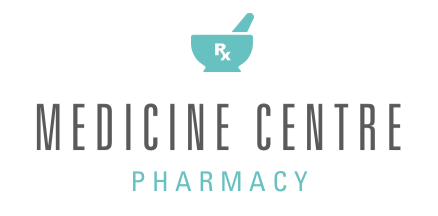To Visit Online Pharmacy Click HERE ↓
The use of hormone replacement therapy (HRT), is highly effective for improving the quality of life of women suffering from acute symptoms of menopause, such as hot flashes, night sweats, insomnia, increased fatigue and irritability, depression, skin changes, vaginal dryness and incontinence. HRT also provides some long-term protection against cardiovascular disease, osteoporosis and colon cancer.
Improved Quality of Life
The major benefit of HRT cited by women who use it is the improved quality of life and relief of symptoms. They appreciate the freedom it provides. Quality of life cannot be quantified. Your mood, your feeling of well-being, and your satisfaction with yourself and your surroundings is perceived differently by you than it will be by other women. It is a very individual matter. Your societal and domestic status can also play a role in how you feel and react to menopause.
The typical menopausal woman today holds optimistic beliefs about maintaining her femininity and sexuality. Unfortunately, she may be confused about how to do that and what to expect. There is no doubt that taking hormones after menopause does have direct beneficial effects on mood and behavior, and therefore on the quality of life.
Relief of Hot Flashes
The relief of hot flashes is the most significant benefit you will perceive soon after starting HRT. Estrogens are remarkably effective in eliminating this annoying symptom. Hot flashes can occur during the day or at night, as “night sweats,” and can cause sleeping disturbance up to and including the need to shower, change night clothing, and change bedding. HRT brings relief from hot flashes and an improvement in sleep.
Improved Mental Outlook
Studies have shown conclusively that estrogen improves the mood of women who had lost ovarian function.
The actual reasons for the mood-elevating effects are not fully understood, but it is known that estrogens have many effects within the brain and the nervous system. This mental tonic effect of estrogens, which is perceived as a feeling of overall well-being, goes beyond the fact that the hot flashes have been relieved. Women often describe a feeling of revitalization and of being reborn, which translates into better performance of daily duties and greater enjoyment of daily pleasures. These women feel more alert and better able to function.
Reduce Minor Depression
Estrogen reduces the minor depression that some women experience after menopause. Major, continuing depression, however, requires a different therapy.
Enhanced Quality of Sleep: Enhanced Quality of Sleep:
Studies at Harvard confirmed that estrogens enhanced the quality of sleep. We know that stopping the night sweats for women suffering hot flashes improve their sleep. Women without night sweats experienced an improvement in REM sleep (rapid eye movement-the good sleep). This improvement occurred for all the women on HRT. There was a deterioration of REM sleep in women deprived of HRT.
Improved Short-Term Memory
Improved short-term memory is a distinct advantage of HRT. A study performed at King’s College Hospital, London, England found a distinct difference in short-term memory between women who had active ovaries or were on postmenopausal HRT as compared to menopausal women without ovaries or HRT. Other studies have confirmed these findings, and continue to provide evidence that when women take estrogen their short-term memory improves.
Disease Prevention: Combats Osteoporosis
Estrogen therapy is the most successful method of combating osteoporosis. However, there is some question whether estrogen is really that effective when women has already reached menopause for combating the effects of osteoporosis. Estrogen does increase bone mass by inhibiting the function of osteoclasts, the cells that eat old bone so that new bone can be laid down. Our bones remodel throughout life in accord with how we bear weight and how we exercise.
The action of osteoclasts and osteoblasts in rebuilding bone mass can be illustrated by what happens when an orthodontist applies braces to straighten teeth. The braces put pressure on the bone that holds the teeth in place. Osteoclasts respond to this pressure by eating away the bone on the far side of the tooth, giving it room to move. Osteoblasts lay down new bone on the near side of the tooth to hold it in place. To have a healthy bone, we need to have control on both – osteoclats that eat away bones and osteoblasts that rebuild new bones.
Long-term estrogen use (10 or more years) may be required to prevent postmenopausal bone loss. Estrogen helps bones absorb the calcium they need to stay strong. It also helps conserve the calcium stored in the bones by encouraging other cells to use dietary calcium more efficiently. While estrogen decreases osteoclast activity, thus increasing bone mass, it has no effect on osteoblast activity. In other words, it doesn’t build new bone. In contrast to this, exercise does increase osteoblast activity, as does progesterone. We do not know for sure whether estrogen-and-progesterone combinations or progesterone alone are best for the prevention and treatment of osteoporosis. Clinical tests are being carried out now that will shed some light into this in the near future.
Most bone is lost before menopause even begins. A low-fat, low-protein diet rich in fiber and green leafy vegetables, regular exercise, and the avoidance of smoking, alcohol, and carbonated beverages (high phosphate level in the carbonated drinks displaces calcium from bones) is the best strategy for maintaining healthy bones throughout the life cycle.
Reduces the Risk of Cardiovascular Diseases (CVD)
Since heart disease develops about ten years later in women than in men, and risk begins to increase postmenopausally, low estrogen levels have long been considered a risk factor. Premenopausally, women have higher levels of HDLs (good cholesterol), and lower levels of LDLs (bad cholesterol) than do men. After menopause, a woman’s total cholesterol level increases, HDLs drop and LDLs rise. Since estrogen plays an important role in lipid metabolism, it seems to follow that it might prevent cardiovascular disease postmenopausally. Scientists are not certain whether the beneficial effects observed from HRT is due to progestins or the estrogen or both.

